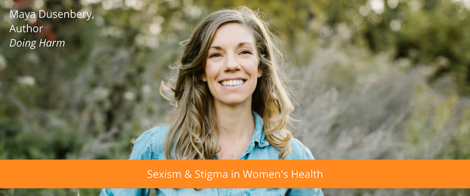Your podcast discovery platform
Curious minds select the most fascinating podcasts from around the world. Discover hand-piqd audio recommendations on your favorite topics.

piqer for: Boom and bust Deep Dives Doing Good Climate and Environment Technology and society Global finds
Chhavi Sachdev runs Sonologue and is India's second most experienced podcaster, having started putting out podcasts on her own and for clients like the Blue Frog in 2008... long before Serial, leading her mother to tell other people "I don't know what she does. Something to do with radio on the Web."
Over the last 10 years, she has developed and launched several podcasts that are successfully running, as well as produced the LSDcast - India's definitive podcast about love, sex, and dating, and Tall Tales Takeaway -- bite size true stories, told live.
She also conducts workshops on DIY podcasting, audio editing, and consults for organizations that need a little handholding in the audio format.
To pay the bills, Chhavi is a freelance multimedia journalist and producer covering science, health, development, sustainability, and women's issues extensively. She has co-hosted episodes for BBC's World Hacks and CrowdScience and she's a frequent presenter on PRI's The World, BBC's Health Check and several Deutsche Welle programs.
She listens to podcasts while exercising, doing chores, and also when she's felled by migraines.
Migraines, sexism, and stigma
As a #migraineur, I'm always looking for more information about migraines and it's always shocking that there is such a paucity of information, help, or treatment. I only realized recently that this lack is the symptom of a massive problem: sexism. There's no way to sugar coat this, but the truth is that headaches are typically "women's problems" and sadly, women are not treated as credible even when they're the patient. Plus, data shows that the funding women's issues gets is meagre at most.
Maya Dusenbery is the author of Doing Harm, "a hard-hitting expose that reveals how modern medicine is systematically failing women today." Even today, there's one drug, she points out, where the dosage differs for men and women taking into account their different physiologies.
In the context of migraines, she talks about how pain management is neglected by physicians as well as their teachers and institutes. Migraines are particularly hard to deal with -- from a doctor/researcher's point of view -- because they're quite subjective, and the description is based on a sufferer's experience. There's no way to stick a thermometer into the brain and measure the levels and symptoms from the outside.
Her key point is this: "Gender bias in healthcare is systemic and unconscious and shapes what we know and the quality of the care that patients receive."
That makes me pretty angry. But the podcast goes on to also share how patients can advocate better for themselves as well as how policies can change. This is very US focused, but as a migraineur, I don't care if the research happens overseas as long as targeted drugs and therapies are developed.
